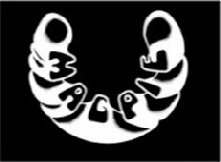
TV Pop Diaries
Pop Music on British Television 1955 -
Thames Television had effectively been awarded the ITV franchises of both ABC and
Rediffusion and in among the first batch of programme announcements in summer 1968
was a new tea-
Magpie was a replacement for Rediffusion's Come Here Often, which seems to have had the working title of Magpie at some point in 1967.
Initially a weekly show on Tuesdays from 5.10 to 5.50 pm it would expand to two slots on Tuesdays and Thursdays from February 12th 1969 onwards, and trying to avoid a clash with Blue Peter it would start at 5.20 pm just as Blue Peter finished.
The first hosts were Radio One’s Pete Brady, Susan Stranks (who had made appearances
on early editions of Juke Box Jury) and Tony Bastable. Thankfully they didn't indulge
in having pets in the studio ready to attack any unsuspecting guests (although they
did have the stable-
A show spokesman, talking to Record Mirror in July 1968 said "It is to be a trendy magazine programme, with guests from the world of pop as well as from other fields. It is not just a 'plug' programme for groups, though various pop artists will be singing on the show."
Even though they started with a clean slate they did decide to include one leftover from the Rediffusion days. Captain Fantastic, the weekly serial starring David Jason and Denise Coffey from Do Not Adjust Your Set would have a new lease of life in the show, occupying the last five minutes of the show in its first few weeks of transmission.
The show was not necessarily targeting older children, but it never patronised them
and treated kids as kids who just wanted something different. They knew their audience
were just as likely to be into The Crazy World of Arthur Brown as well as The Tremeloes,
and not as the Enid Blyton loving, scout-
The show had a pop slot which was mostly music news, but on occasion acts would appear
in person. One of their early films was on Apple Records' Mary Hopkin and her producer
Paul McCartney. Another notable show was in November 1968 which had Pete Brady hold
up The Beatles new double album claiming "it's still warm in my hands" which was
likely as the EMI record pressing plant was nearby and Thames had an ownership association
with EMI. Thames had another unlikely pop-
Hosts came and went on the show and many see the classic line-
In 1977 they had booked The Stranglers for an appearance on the live show, but the Thames bosses pulled the plug fearing another potential Sex Pistols outburst.
Magpie came to an end in 1980 and was succeeded by a poor procession of shows curiously
trying too hard to appeal to a post-
In 2009 Network released a DVD set of twelve editions and reunited Hanley, Robertson and Rae for publicity.
MAGPIE
Thames
30th July 1968 to 6th June 1980
